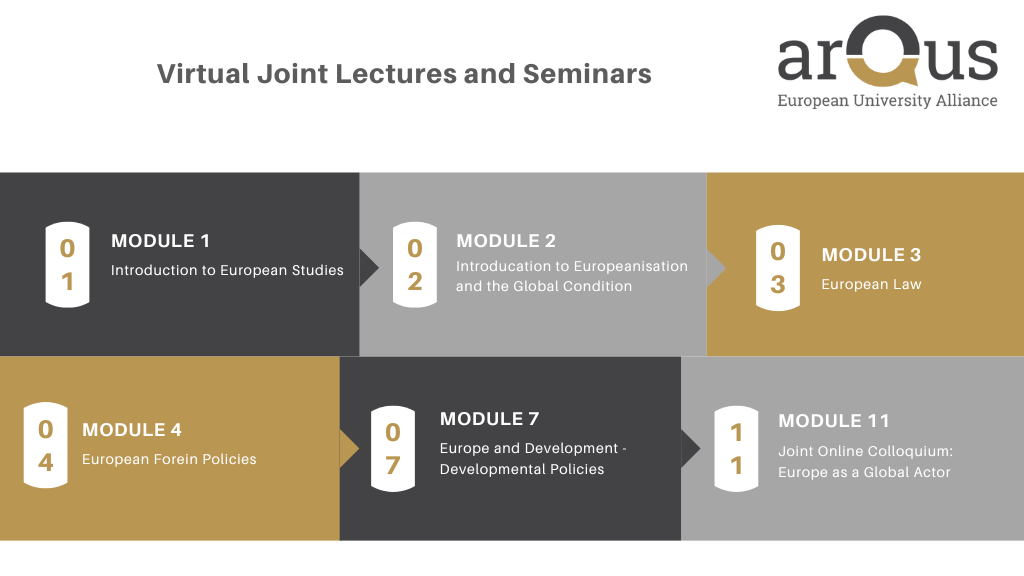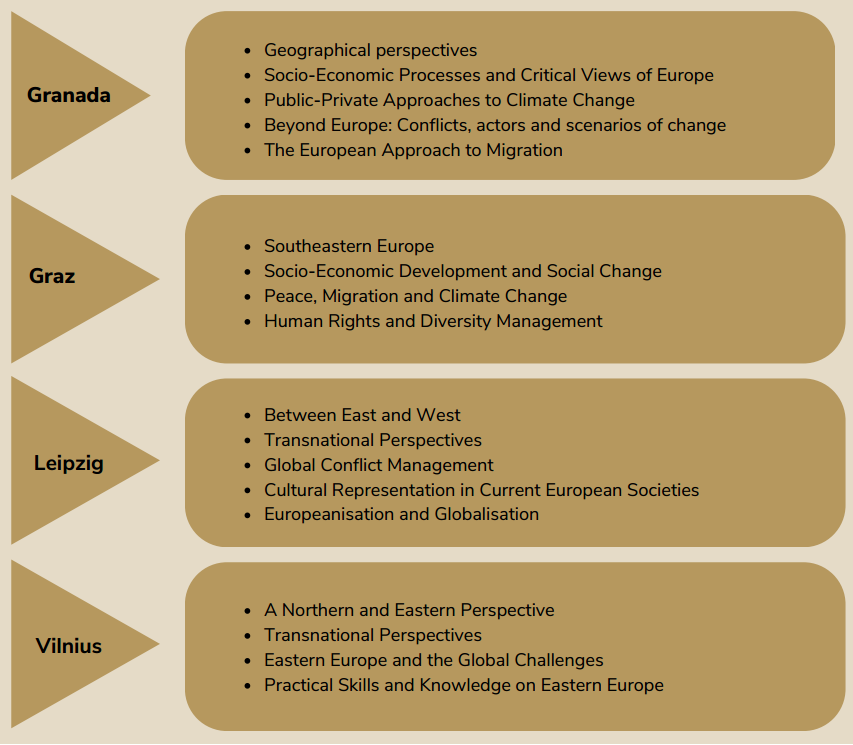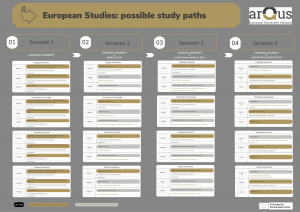In the third semester or optional during the fourth semester, there is the possibility of completing an internship outside the universities or a research internship in one of the participating universities in order to establish a relationship between the topic choice for the Master’s Thesis and the world of possible later work opportunities. The programme encourages students to benefit from the chance to discover the practical part of research during an internship. Those students who will not do an internship will complete an elective module in order to receive the required credits. The internship/ research internship will be accomplished in a period of 300 hours (=10 ECTS) or 150 hours (=5 ECTS).
Students of the Joint Master´s Programme have the opportunity to take part in a large number of research projects in the field of European Studies at each study place. Alternatively, they can also complete a self-organized internship in order to supplement their academic and theoretical knowledge with practical experience and skills in this field.
After successfully completing the module, students will write an internship report that describes the tasks, process and experiences of the internship as well as it reflects on the context of practical and research study in the field of “European Studies”.
Support, Coordination and Recognition
From the beginning of the study programme, students can contact the local coordinators at each study place and the programme coordinator in Leipzig, to ask for information and assistance for an internship. The coordinators provide students with information about scholarships, part-time jobs and internships.
At all study places, several companies and organization as well as media houses/ services that a related to the field of European Studies are well represented.
Additionally to local offers of guidance and support, the well-elaborated Arqus Internship Mobility Guidebook includes comprehensive information about study locations and the particular regulations as well as guidance through the whole process of doing an internship.
The Arqus Internship Portal serves as beneficial access to announcements of internships among all Arqus university locations.
In order to deliver the appointed credits for the implemented research internship/ internship, Leipzig University as the coordinating institution of the study programme , will recognize the internships which was taken at the partner institutions. The process is harmonized with the general procedure of the recognition of prior learning.




